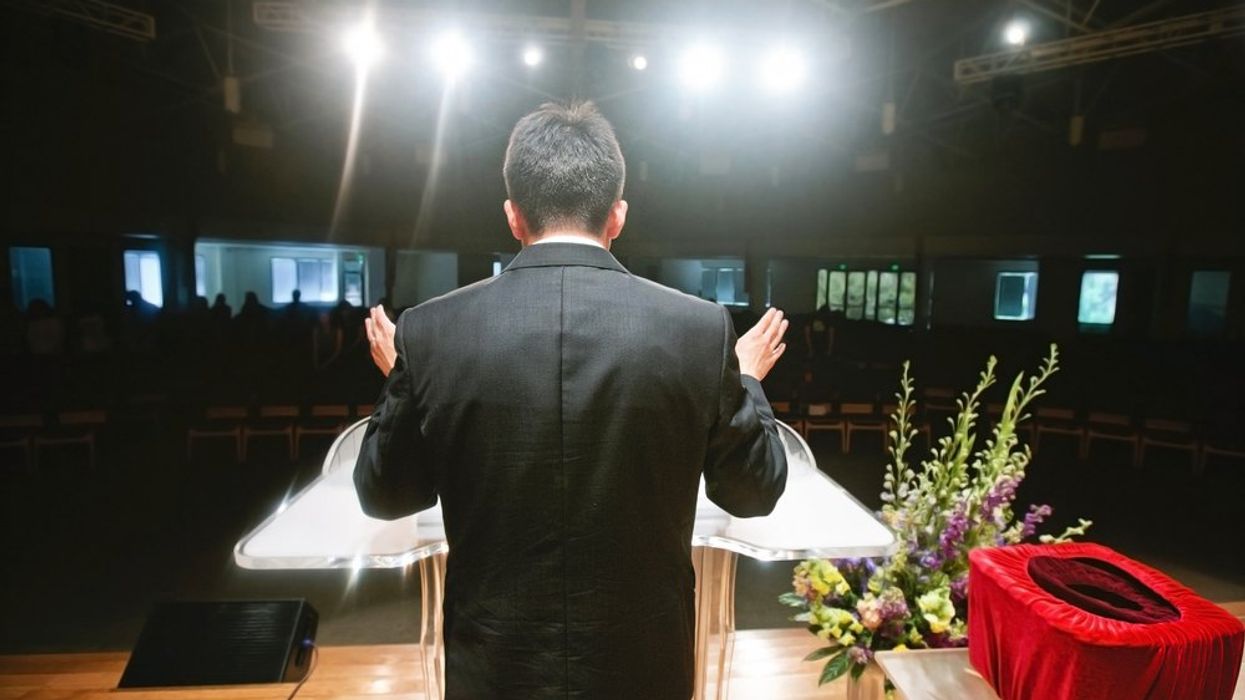In a court filing submitted on Monday, July 7, the Internal Revenue Service (IRS) announced that it was changing a rule affecting churches — who, going forward, will be able to make political endorsements in the public without endangering their tax-exempt status. Far-right white evangelicals, including the Rev. Robert Jeffress, were quick to applaud the decision.
But Salon's Amanda Marcotte, in an article published on July 11, argues that pro-Donald Trump evangelicals may regret the ruling in the long run.
"For liberals living outside the world of the Christian Right," Marcotte explains, "it may not seem like a major change. On Monday, the IRS revoked a longstanding rule that stripped tax-exempt status from churches that endorse political candidates. From a horse-race view of elections, this may not make a difference. While conservative pastors may have technically avoided the words 'vote for Donald Trump' or 'vote for Republicans' in the past, the expectation was transmitted to followers in ways that weren’t exactly subtle: Calling for the reinstatement of prayer in public schools, for 'a time of national repentance' in America and even for Supreme Court vacancies to allow for the appointment of 'righteous' judges."
READ MORE: Trump's goal isn’t to restore American greatness — it's much more sinister
Marcotte continues, "Nor was it just that right-wing ministers were expressing Republican-shaped views about everything from LGBTQ rights to tax laws from the pulpit. Outside church walls, the massive ecosphere of Christian media hammered the message day in and day out: Democrats are demonic, and voting for them will send you to hell."
For decades, far-right evangelicals have been railing against the Johnson Amendment — which was introduced in 1954 by then-Sen. Lyndon B. Johnson (D-Texas) and prevented churches to make overt political endorsements in the pulpit if they wanted to keep their tax-exempt status. Many evangelicals considered the Johnson Amendment anti-First Amendment, but its defenders responded that churches were free to make political endorsements as long as they didn't mind giving up their tax-exempt status.
Marcotte argues that the IRS' decision will hurt, not help, far-right white evangelicals down the road.
"It's not a surprise that right-wing ministers are salivating at the chance to cater to powerful politicians while simultaneously keeping more money in their pockets," Marcotte writes. "But this decision is shortsighted, particularly if they want to stymie the already significant losses in membership rolls that Christian churches have seen in the past couple of decades. They may come to rue the day they took what amounts to payola to champion Trump ahead of Jesus Christ…. They cannot serve two masters, Trump and Jesus Christ."
READ MORE: 'Pay attention': Supreme Court justice gives dire warning about 'state of our democracy'
Marcotte continues, "They've already lost supporters by leaning too far into political advocacy. Now that they've forsaken the last obstacle to selling out entirely, they will likely lose many more."
READ MORE: 'It's a flat out lie': Former wrestlers say Jim Jordan knew about abuse in new HBO documentary
Amanda Marcotte's full article for Salon is available at this link.


